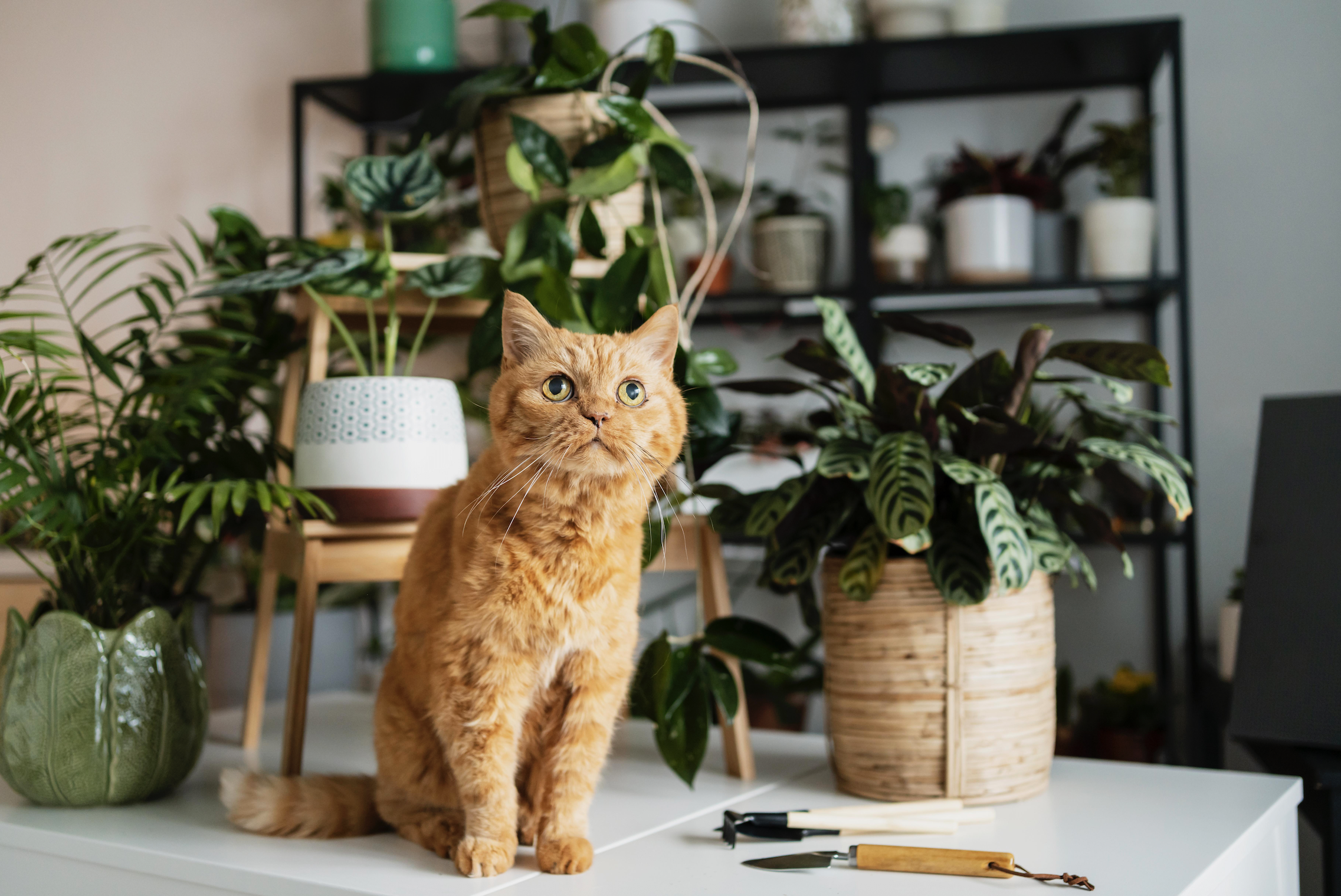Plants and pets: what are the toxic plants?
Bringing greenery into your home can enhance its aesthetic appeal and purify the air. However, many common household plants can be toxic to pets, causing mild to severe health issues. Whether you’re a proud pet parent to a curious cat or a playful pup, it’s crucial to know which plants are safe and which are harmful. This article is about the types of toxic plants for cats and dogs, the potential consequences if ingested, and tips to keep your home safe for everyone.

Toxic plants for dogs and their effects
Dogs, driven by their innate curiosity, often chew on plants. Unfortunately, some plants pose serious health risks.
Common toxic plants for dogs:
- Sago Palm: Can cause liver failure, vomiting, and even death.
- Aloe Vera: May lead to vomiting, diarrhea, and lethargy.
- Tulips: Can cause drooling, loss of appetite, and gastrointestinal distress.
- Daffodils: Highly toxic, causing vomiting, tremors, and heart irregularities.
- Oleander: Extremely poisonous, leading to gastrointestinal, cardiac, and nervous system issues.
- Dieffenbachia (Dumb Cane): Causes oral irritation, excessive drooling, and difficulty swallowing.
Symptoms of Plant Toxicity in Dogs:
- Vomiting and diarrhea
- Excessive drooling
- Lack of coordination
- Abdominal pain
- Tremors or seizures
Toxic plants for cats and their effects
Toxic plants for cats and their effects
Cats, known for their playful nature, are particularly prone to nibbling on houseplants, some of which are highly toxic.
Common toxic plants for cats:
- Lilies: Extremely dangerous, causing acute kidney failure.
- Peace Lily (Spathiphyllum): Leads to irritation of the mouth and esophagus.
- Philodendron: Causes oral irritation and difficulty swallowing.
- Pothos (Devil’s Ivy): Results in drooling, vomiting, and irritation of the mouth and tongue.
- Azaleas: May cause gastrointestinal issues, lethargy, and cardiovascular collapse.
- Chrysanthemums: Known to cause drooling, vomiting, and loss of coordination.
Symptoms of plant toxicity in cats:
- Vomiting or foaming at the mouth
- Lethargy and disinterest in food
- Difficulty breathing
- Swollen mouth, lips, or tongue
- Excessive thirst or urination
What to do if my pet eats a toxic plant?
Immediate action can save your pet’s life. Follow these steps:
- Identify the plant: Try to determine which plant your pet ingested.
- Remove the plant: Safely remove the plant from your pet’s reach to prevent further ingestion.
- Observe symptoms: Monitor your pet for signs of toxicity.
- Contact your vet or emergency services: Call your veterinarian or an animal poison control hotline. Bring a sample of the plant for reference.
- Do not induce vomiting unless directed: Forcing your pet to vomit may cause more harm. Always consult a professional first.
Animal Mama Hospital – is a veterinarian hospital in Phnom Penh and Siem Reap which provides 24/7 emergency service. Our expert veterinarians are equipped to handle plant toxicity cases and provide the immediate care your pet needs.
How to make sure your home plants are safe
- Research before buying: Confirm that any plants you bring home are pet-friendly.
- Keep toxic plants out of reach: Use hanging baskets, shelves, or closed rooms to keep harmful plants away from pets.
- Choose pet-safe alternatives: Replace toxic plants with safer options like spider plants, Boston ferns, and baby’s tears.
- Use barriers: Place barriers around outdoor toxic plants if you cannot remove them.
- Be aware of signs: Even pet-safe plants can cause mild digestive upset if eaten in large amounts, so always keep an eye on your pets.
Keeping your pets healthy and happy means paying attention to every detail in their environment — including the plants. At Animal Mama Hospital, we’re here to support you in creating a pet-friendly home. If you suspect plant toxicity, don’t wait. Contact us for immediate advice and care.
Because Animals Are People Too
FAQ about toxic plants and pets
- What are some pet-safe plants I can keep at home?
Safe plants for pets include spider plants, areca palms, Boston ferns, and baby’s tears. These non-toxic options add beauty to your home without posing a risk to your pets.
- How can I tell if a plant is toxic to pets?
Check the ASPCA or Animal Mama Hospital’s pet care guide. Alternatively, ask your veterinarian before introducing new plants into your home.
- What should I do if my pet starts showing symptoms after ingesting a plant?
Contact your veterinarian or an animal poison control center immediately. Do not attempt home remedies without professional advice.
- Are artificial plants safe for pets?
Artificial plants can be safer since pets can’t ingest toxins. However, chewing artificial plants may cause choking or blockages.
- How often should I inspect my plants for pet safety?
Regularly inspect your home and garden for new growth or plants your pet could reach, and ensure everything remains safe for them.

